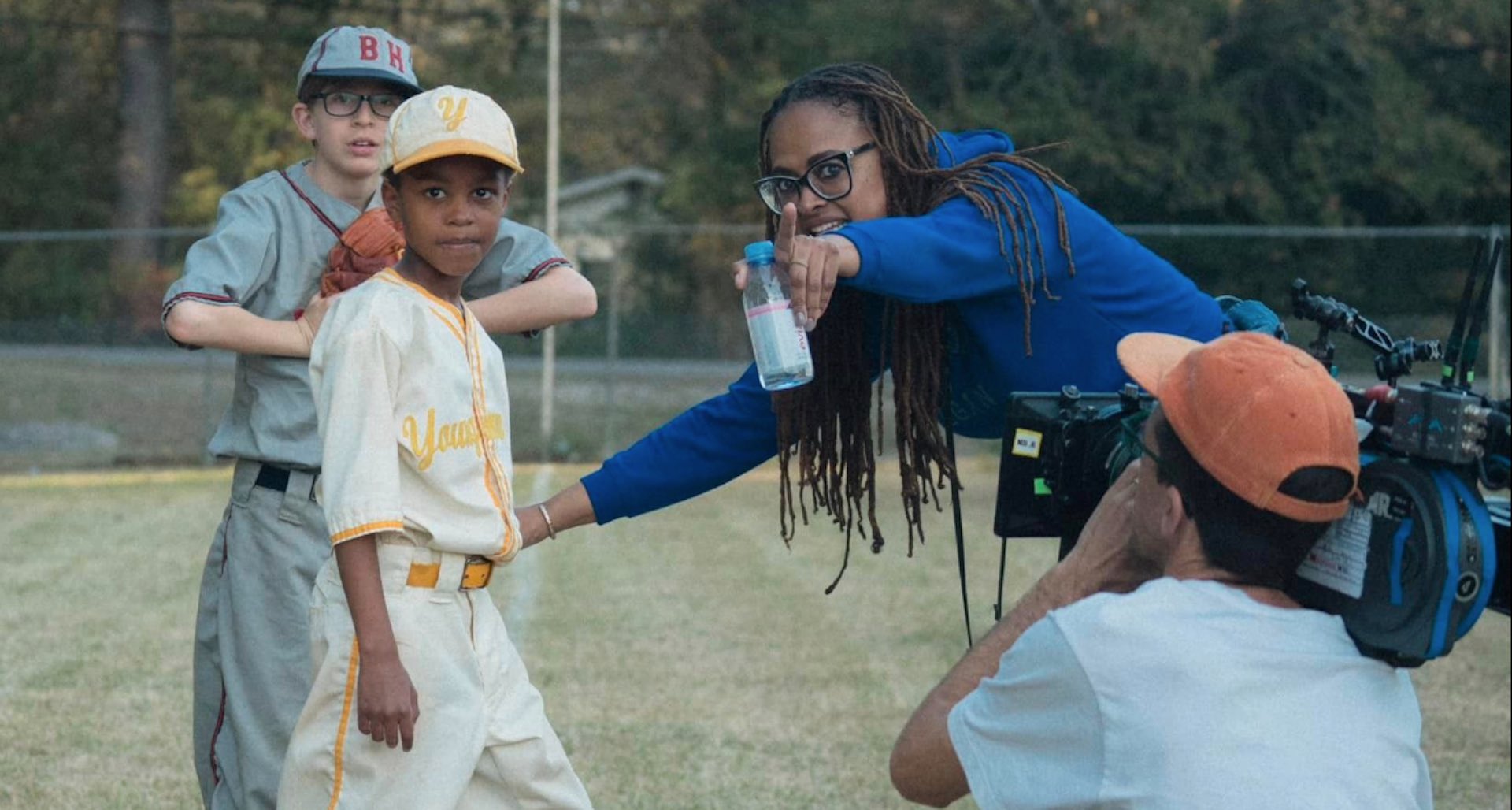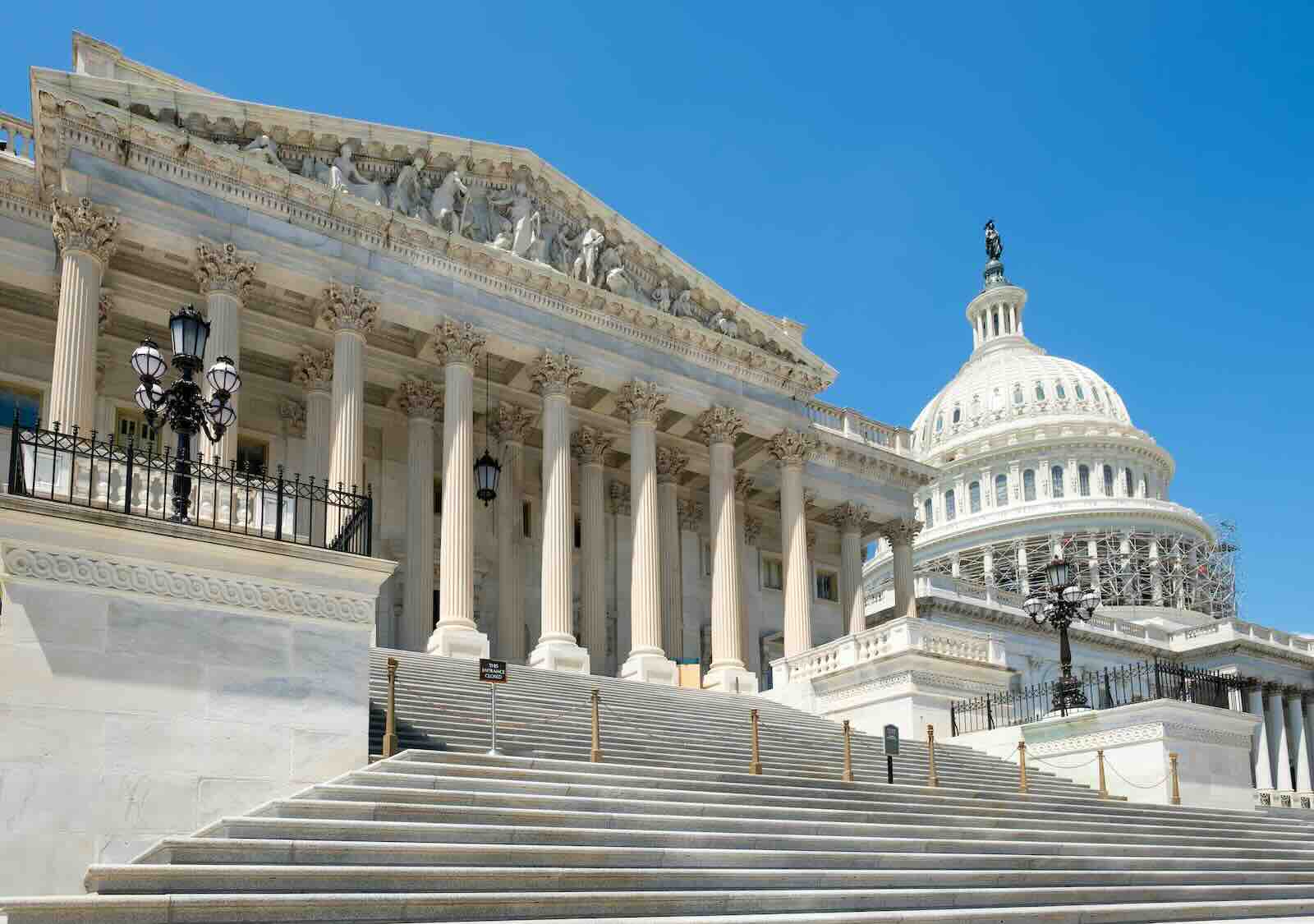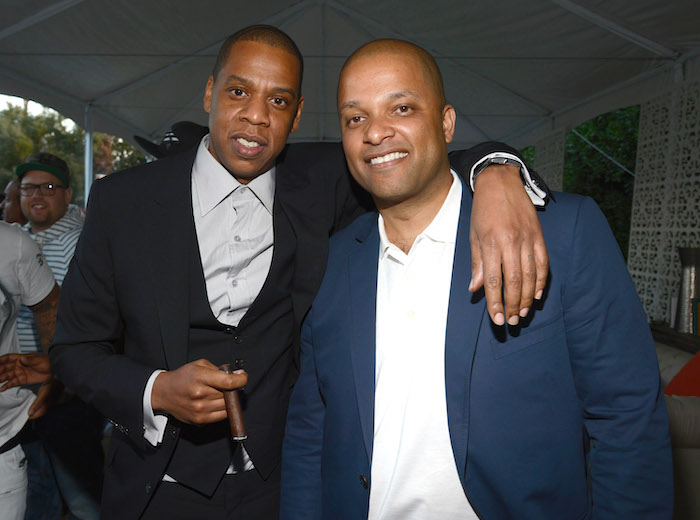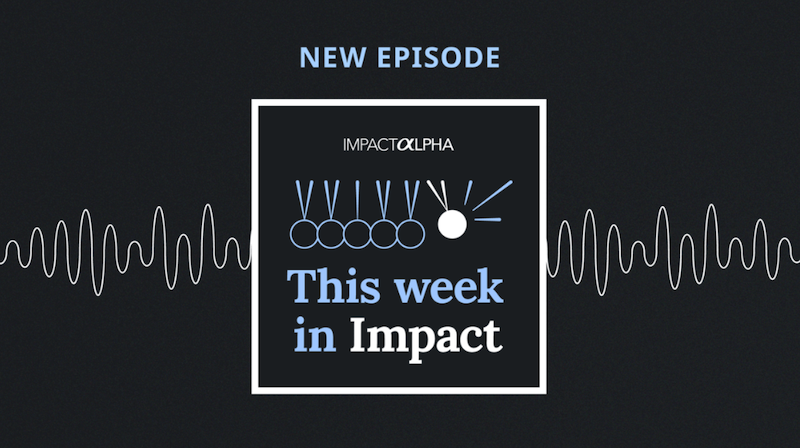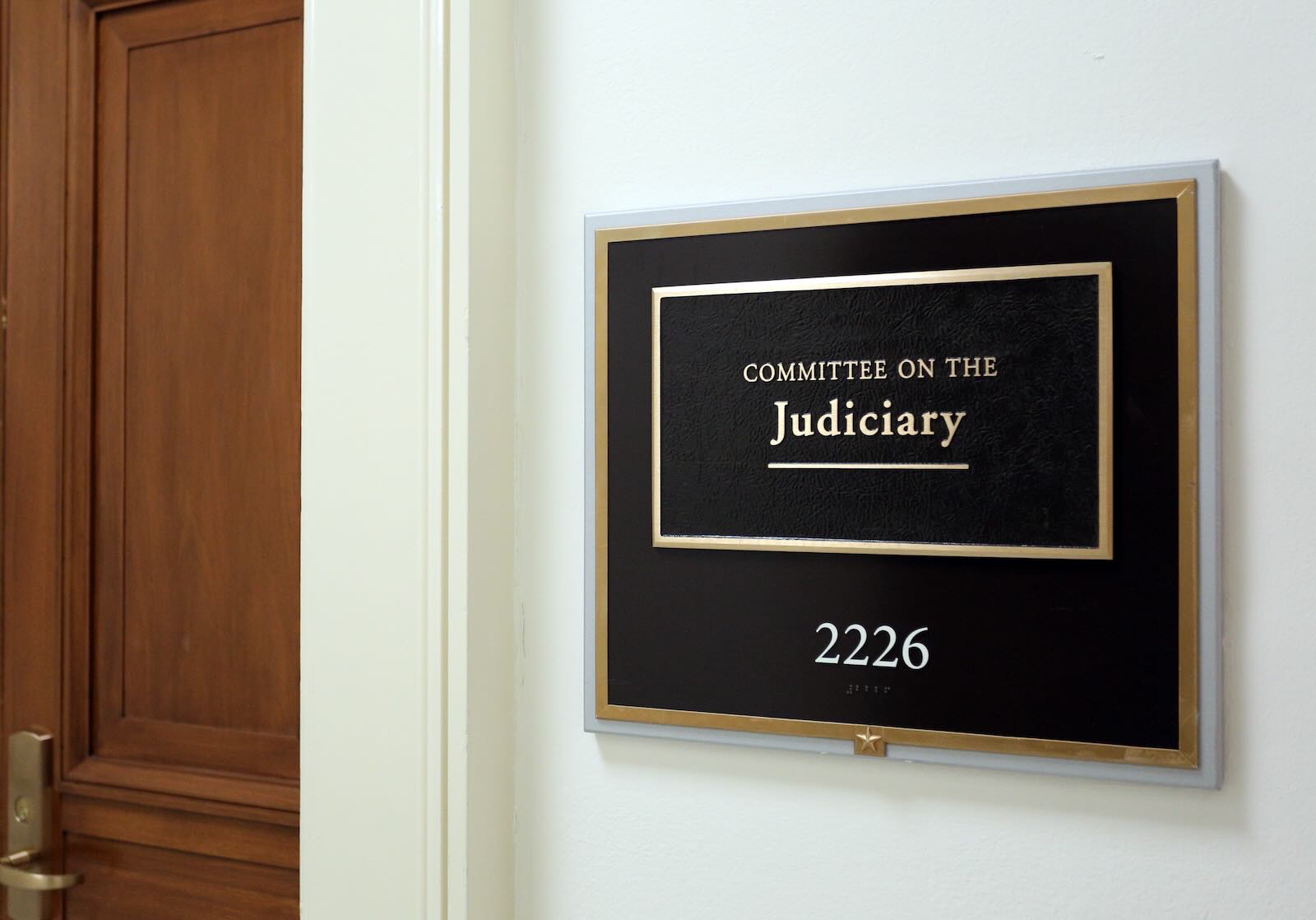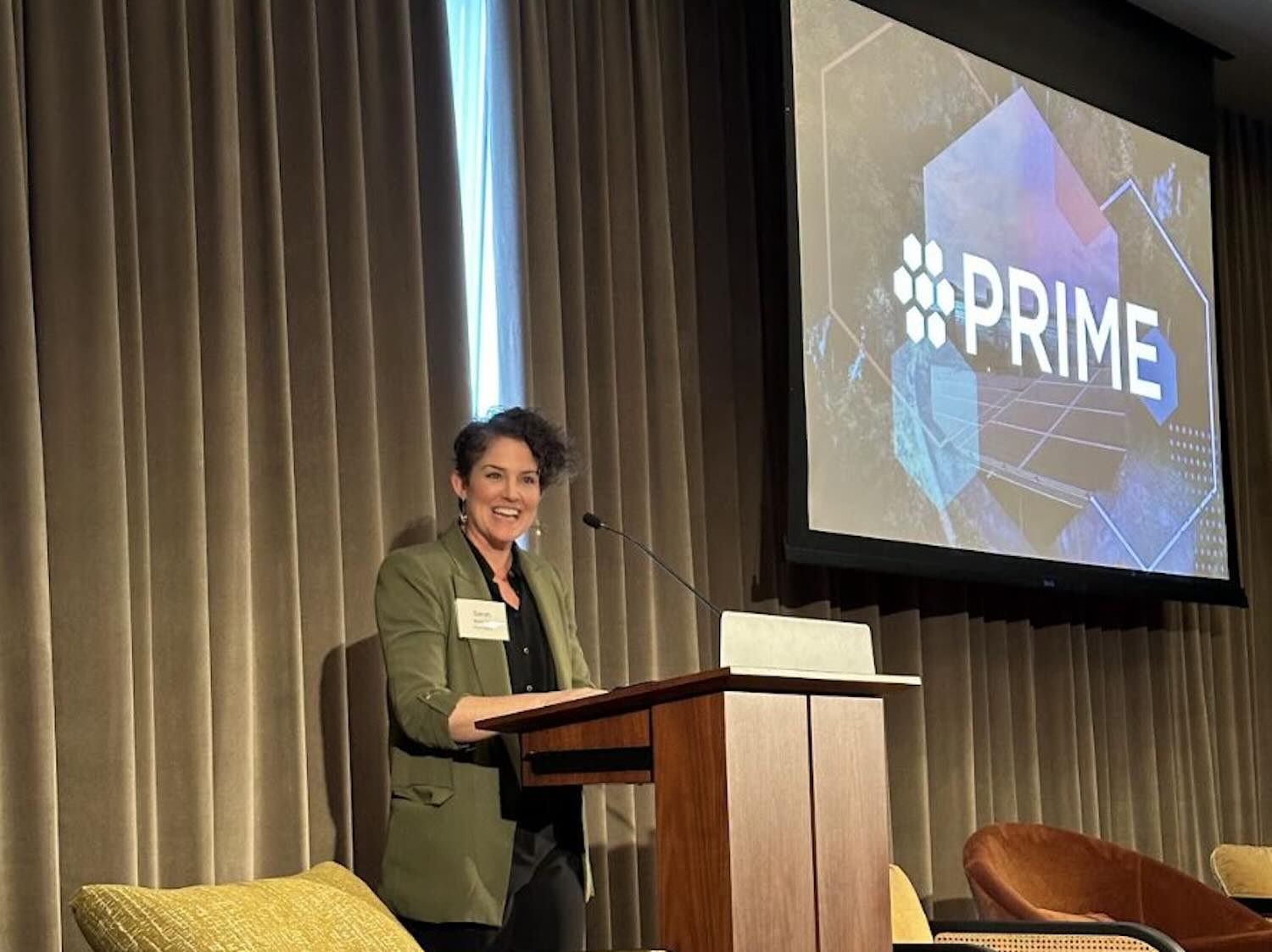Filmmaker Ava DuVernay could script in advance the reaction she’d get from Hollywood studio executives to a pitch for her film about caste, the enduring power dynamic underlying racism in America and other forms of domination elsewhere.
“Big record scratch and everybody walks out of the room” is how DuVernay described the response she expected. “It’s not the hot topic.”
Instead, she put together a blended structure of philanthropic financing that let her move quickly and without compromise to make Origin, her critically acclaimed movie based on journalist Isabel Wilkerson’s 2020 book, Caste: The Origin of Our Discontents.
Without that $35 million package, “I don’t believe the film would be in the world right now,” DuVernay told ImpactAlpha in a joint video interview with the Ford Foundation’s Roy Swan at last month’s Mission Investors Exchange national conference in Los Angeles.
“If for some reason some studio did agree to it, it would not be the same version that you see.”
Origin, released earlier this year, spans 400 years and links caste systems in the United States, India and Nazi Germany. DuVernay tells the complex story as a chronicle of Wilkerson’s personal life and historical research as she wrote the book.
Ford Foundation was the anchor investor that helped bring in other funders. The foundation has long provided grant funding for film and TV, but up until now, predominantly documentaries (in 2017, Ford participated in a $150 million financing for a slate of films for Charles King’s Macro Film, the studio behind Fences, Mudbound and Just Mercy). For Origin, its first direct investment in a commercial, for-profit film, Ford ended up investing a total of $10 million.
Swan, who directs Ford’s $1 billion allocation to mission investments from the foundation’s $16 billion endowment, said the philanthropic financing for a commercial project produced by a nonprofit studio is a model that can be replicated for other narrative-shifting social impact films, starting with DuVernay’s own upcoming projects.
“I can’t imagine not funding something Ava was going to do,” he said in the interview.
Social impact storytelling
DuVernay’s and Array’s success in creating a structure for philanthropic investors comes at a pivotal moment for social-impact filmmaking, particularly those made by Black and female filmmakers.
Last month, billionaire Jeff Skoll abruptly shuttered Participant, which had become the largest dedicated producer of social-change films in Hollywood. Participant helped produce DuVernay’s 2019 Netflix series, When They See Us, about the “Exonerated Five,” the Black teenagers who were wrongfully convicted in the 1989 rape and assault of a white female jogger in Central Park.
In the wake of Participant’s closure, DuVernay and dozens of other filmmakers, actors and activists issued an open letter to Hollywood studios urging them to prioritize social-impact storytelling.
“They’ve made the decision to shutter and that opens the opportunity for others to come in and fill that space and make it even bigger,” DuVernay said. “We feel that the model that we have been incubating and that we practiced for the first time with Origin is one that will grow, will blossom and will hopefully be an example to others,”
The combination of grants and investments that DuVernay wrangled to finance the film is already the subject of a Harvard Business School case study released in March.
It took just a few months for DuVernay to raise the rest of the $35 million in grants and investments from Emerson Collective, Pivotal Ventures and a dozen other foundations, collectives and individuals. Array itself invested $5 million.
The film’s blended finance structure and philanthropic investors “demonstrated our field’s commitment to using impact investing as a tool to drive narrative change, not just in Hollywood, but in society at large,” and helped set a precedent for future projects, said Matt Onek of Mission Investors Exchange, which hosted a fireside chat between DuVernay and Swan at its national conference last month.
With Participant’s exit, he said, “It’s more important than ever for funders to fill the space and support filmmakers who want to tell critical stories that can help move society forward.”
Narrative change collective
DuVernay used the funding to acquire adaptation rights, develop and produce the film, as well as to produce the education materials for the social impact campaign that accompanied the film.
Array Alliance, DuVernay’s nonprofit production house and narrative-change collective, organized the film’s production and distribution. Just before its 2023 premiere, the independent film studio Neon acquired distribution rights.
DuVernay herself took the minimum salary allowed by Hollywood guilds, and will use the proceeds from Array’s investment for future charitable purposes.
“We’re now a healthy, thriving nonprofit that is looking to disrupt the systems that ensnare and keep content with purpose in a bottleneck in Hollywood,” DuVernay said. “I said, ‘Look, I can’t force Hollywood to care about this. Why don’t we make it outside of Hollywood in a different way and reach audiences differently?’ And that’s what we’re working on.”
Before Origin, DuVernay had written, directed and produced highly acclaimed films and TV projects, including in Selma, about Dr. Martin Luther King; 13th, on mass incarceration in the US; and Disney’s A Wrinkle in Time, featuring Oprah Winfrey, DuVernay’s only big-budget studio production.
Instead, DuVernay produced most of her films and series through Array, the “social impact collective dedicated to narrative change” she created in 2011 to amplify voices of color and women in Hollywood. The company has grown to include Array Releasing, a distribution arm; Array Filmworks, the production house; and Array Campus, a four-building creative space in the Historic Filipinotown district of Los Angeles.
Array’s educational arm produced a learning companion for When They See Us, which teachers and students used in the classroom to learn about power and inequality in the US justice system. Array Crew is a database of 10,000 film technicians of color used by more than 1,000 productions. Array Green, another initiative, reduces energy and waste on film sets to help reduce Hollywood’s impact on climate change.
DuVernay said she first connected with the Ford Foundation’s president, Darren Walker, when he cold-called her after seeing DuVernay’s work on 13th. Ford provided early grant funding for Array Alliance. When she set out to make Origin, Walker was the first person DuVernay approached.
“So he calls Roy Swan and together Ford decided to be the signal funder, the first funder, and to say, “Let’s try to put together something different.”
Emerson Collective, the philanthropic investment firm of Laurene Powell Jobs, followed with both a grant and an investment. Then came Pivotal Ventures, founded by Melinda French Gates, which chose to make a grant (Pivotal had provided earlier funding to Array), as did MacArthur Foundation.
For most of the organizations, investing directly in a commercial film was new, but all believed the story needed to be told and that DuVernay was the right person to tell it.
“Ava and Array understand that having more women and people of color in front of the camera, behind the camera, and in other key positions will result in stories that resonate with a broader swathe of people,” Pivotal’s Nicole Gates said in an interview for the Harvard case study.
Among the other investors was NBA star Chris Paul, whose own production company, Ohh Dip!!! Productions, looks for stories that go beyond entertainment. Paul had earlier donated to Array Campus. Investing in Origin, he says, was a no-brainer.
“It’s because it’s Ava,” Paul told the authors of the Harvard case study. “I have invested in quite a few other companies and, over time, you learn that you don’t just invest in an idea, but you also invest in a person.”
Foundation for change
Those relationships continue to bear fruit. When Melinda French Gates awarded $20 million to each of a dozen leaders to make their own grants, DuVernay was on ths list, alongside former prime minister of New Zealand, Jacinda Ardern, and Liberian Nobel Peace Prize winner Leymah Gbowee.
“Melinda chose partners and leaders who have expertise in the issues and could bring new perspectives and ideas to advancing women and girls’ health and well-being,” a spokesperson for Pivotal Ventures told ImpactAlpha.
In the interview, DuVernay said that such enduring support can help add bricks to the foundation for real change, even as many leaders and corporations back away from pledges and commitments they made in the aftermath of the 2020 murder of George Floyd.
“I think it was all performative. And now the performance is over,” she said. “We’re finding now that folks who were performing care, performing community, performing courage, are now deciding that they want to get offstage.”
“The question is, Who’s left? And can we still tell the stories and do the things that we’re supposed to do?”

